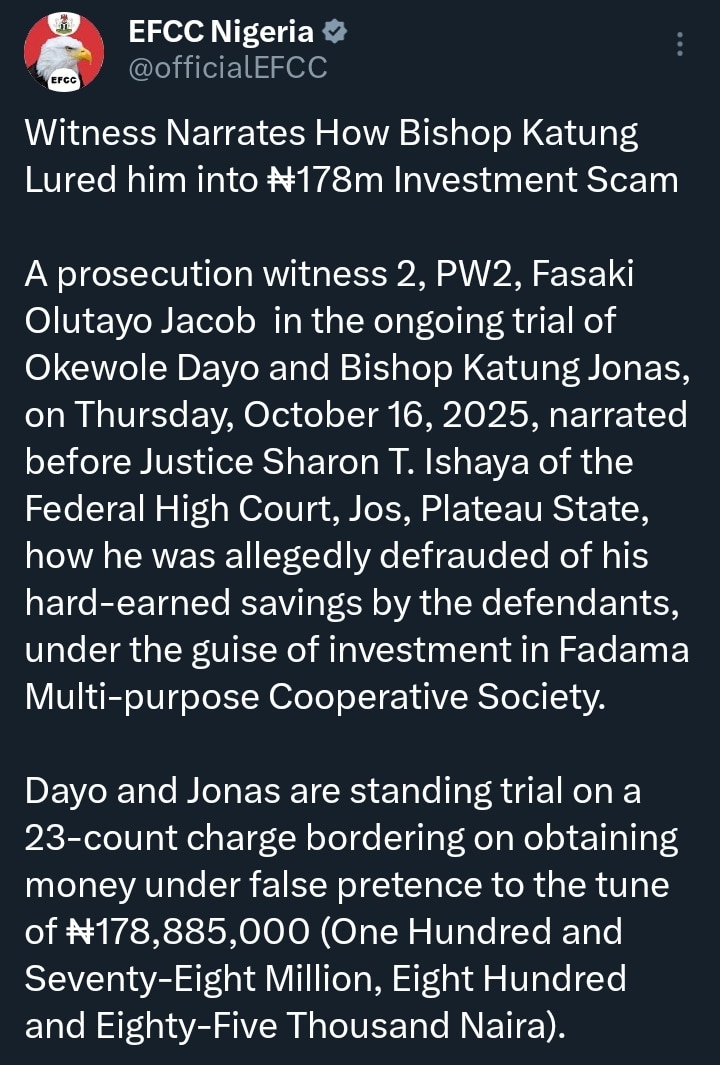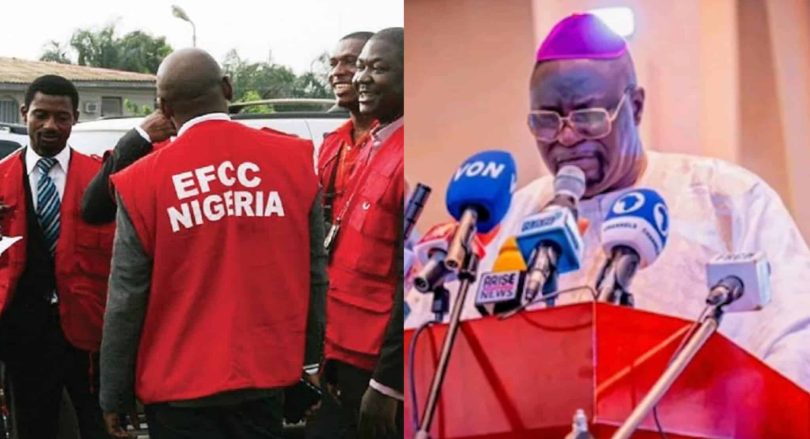A prosecution witness, Mr. Fasaki Olutayo Jacob, has narrated how he was allegedly lured into a fake investment scheme by Bishop Katung Jonas and his associate, Okewole Dayo.
The testimony was given on Thursday, 16 October 2025, before Justice Sharon T. Ishaya of the Federal High Court, Jos, Plateau State.
The two defendants are currently facing a 23-count charge for obtaining money under false pretence, totalling ₦178,885,000, in connection with an alleged fraudulent investment in Fadama Multi-purpose Cooperative Society.
Witness Narrates His Encounter with Bishop Katung
Led in evidence by prosecution counsel Ibrahim Buba, the 68-year-old retired civil servant explained that he first heard about Bishop Katung through a televised sermon on Plateau Radio and Television (PRTV).
“I got to know Bishop Katung through Plateau TV broadcast station where I watched one of his sermons. The message he delivered that day made me believe that Fadama Multi-purpose Cooperative Society was real,” he said.
Jacob told the court that he later met the Bishop at his church, Maranata Church, located on Miyangu Street, Jos. The Bishop convinced him to invest in the cooperative, which he described as a faith-based platform.
He added that he was directed to meet Dayo at the cooperative’s secretariat, where he made an initial payment of ₦1 million to Dadin Kowa Microfinance Bank and later added ₦200,000, totalling ₦1.2 million.
Promised Returns That Never Came
According to Jacob, investors were promised a 10 percent monthly interest and were issued record cards for documentation.
However, payments stopped in 2012. Dayo later convened a meeting at Lamide Hotel, Jos, asking investors to remain patient.
He further stated that Bishop Katung appeared on a television programme assuring investors of payment, but nothing was paid.
The situation worsened, and angry investors gathered at the cooperative’s office demanding refunds. Police intervention prevented violence.
EFCC Steps In
Jacob revealed that the matter was later reported to the Economic and Financial Crimes Commission (EFCC), which took over the case.
Both defendants made statements and attended a reconciliation meeting with investors, where Bishop Katung presented a property document as evidence of assets.
“He promised to sell the property and pay us, but when it was sold, we never received any money,” Jacob said.
The court admitted Jacob’s receipt as Exhibit F. During cross-examination, the witness confirmed that he made his statement to the EFCC in 2012 and that it was true.
He also clarified that the first defendant was not part of the television broadcast that influenced his decision.
Justice Ishaya adjourned the case to 10 and 11 December 2025 for continuation of trial.


